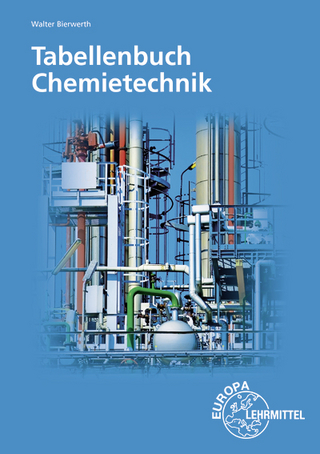
Recent Advances on Hydrogen Storage in Micro- and Mesoporous Materials
Elsevier - Health Sciences Division (Verlag)
978-0-443-23657-0 (ISBN)
- Noch nicht erschienen (ca. Juni 2025)
- Versandkostenfrei
- Auch auf Rechnung
- Artikel merken
Amir Al Ahmed is working as a Research Scientist-I in the IRC-Renewable Energy and Power Systems (IRC-REPS), at King Fahd University of Petroleum & Minerals (KFUPM), Saudi Arabia. He graduated in chemistry from the Department of Chemistry, Aligarh Muslim University (AMU), India, then completed his M.Phil. (2001) and Ph.D. (2003) degree in Applied Chemistry from the Department of Applied Chemistry, AMU, India, followed by three consecutive postdoctoral fellowships in South Africa and Saudi Arabia. During this period, he worked on various multidisciplinary projects, in particular, conducting polymer, electrochemical sensors, nano-materials, polymeric membranes, electro-catalysis and solar cells. At present, his research activity is fundamentally focused on 3rd generation solar cell devices, such as, low band gap semiconductors, quantum dots, perovskites, and silicon nanowire based tandem cells. At the same time, he is also having projects on energy storage technologies, such as, electricity, hydrogen (in porous materials) and heat. He has worked on different NSTIP, KACST and Saudi Aramco funded projects in the capacity of a principle and co-investigator. Dr. Amir has 8 US patents, over 70 journal articles, invited book chapters and conferences publications. He has edited 13 books with Springer, Elsevier, CRC, Wiley and Trans Tech Publication, and several other books are in progress. He is also the Editor-in-Chief of an international journal “Nano Hybrids and Composites along with Professor Y. H. Kim. Bashirul Haq is currently working as an Assistant Professor in the Department of Petroleum Engineering at King Fahd University of Petroleum and Minerals (KFUPM) in Saudi Arabia and has 15 years of experience in research, teaching, consultancy and testing in the reservoir, production and drilling engineering. Haq received a PhD in Petroleum Engineering from The University of Western Australia (UWA) and an M.Sc. in Petroleum Engineering. Bashir rendered consulting services to Chevron, Helix RDS, Unocal, Bangladesh Oil, Gas and Mineral Corporation (Petrobangla) and worked in the UWA, CSIRO, and Curtin University. Haq published about 50 journal and conference papers and a book chapter, out of which 15 papers on hydrogen. He filed four US patents on hydrogen and published a US patent. While working at UWA, Bashir supervised a project titled “Underground Gas Storage Facility of Mondara Gas Field at Western Australia. APA Group, Western Australia, operated the Field. Haq is a member of Engineers Australia and the Society of Petroleum Engineers (SPE). Stefan Iglauer is a Professor of Energy and Resource Engineering, research leader of the Energy and Resources discipline, and Director of the Centre for Sustainable Energy and Resources. His research interests are in petro-physics and interfacial phenomena, mainly at pore-scale with a focus on H2 geo-storage, CO2 geo-sequestration and improved hydrocarbon recovery. Stefan has authored more than 400 technical publications; he holds a PhD degree in Material Science from Oxford Brookes University (UK) and a MSc degree in Chemistry from the University of Paderborn (Germany). His research focuses on nano-energy applications, CO2 and hydrogen storage, flow through porous media, and general energy production and climate change mitigation.
Part 1: Hydrogen storage in zeolite and clay materials
1. Hydrogen storage in zeolite at elevated pressure
2. Hydrogen storage in Chabazite zeolite
3. Hydrogen storage in microporous zeolite
4. Hydrogen storage for ion-exchanged Mazzite and Levyne zeolites
5. Hydrogen storage in low silica type X zeolites
6. Hydrogen storage studies in Zeolite-Y Templated Carbon
7. Adsorption and desorption of hydrogen in ZSM-5
8. Hydrogen storage in nanoporous Zeolites
9. Hydrogen storage in Zeolitic imidazolate framework (ZIF) at ambient condition
Part 2: Hydrogen storage in MOF
10. MOF for Hydrogen storage
11. Effect of MOF Crystal structures on optimum Hydrogen storage
12. The hydrogen storage mechanism of MOF
13. Recent advancement of Hydrogen storage in MOFs
14. MOF-5 as promising material for hydrogen storage
15. Graphene and modified graphene for Hydrogen storage
16. Hydrogen storage in Surface-Modified Multi-walled Carbon
17. Modified carbon nanotubes for hydrogen storage
18. Hydrogen storage in carbon nanotube-based nanocomposite
19. Hydrogen storage in modified graphene-based nanocomposite
Part 3: Hydrogen storage in polymeric Materials
20. Hydrogen storage in intrinsic microporous polymer
21. Hydrogen storage in polymeric nanocomposites
22. Hydrogen storage in electrospun nanofibrous materials
23. Hydrogen storage in nanoporous polymers
24. Economic impacts of physisorption based Hydrogen storage
25. Case or feasibility studies physisorption based Hydrogen storage
26. Challenges and prospects physisorption based Hydrogen storage
27. Hydrogen storage in conducting polymers
| Erscheint lt. Verlag | 1.6.2025 |
|---|---|
| Verlagsort | Philadelphia |
| Sprache | englisch |
| Maße | 191 x 235 mm |
| Themenwelt | Naturwissenschaften ► Chemie ► Technische Chemie |
| Naturwissenschaften ► Geowissenschaften ► Mineralogie / Paläontologie | |
| Technik ► Maschinenbau | |
| ISBN-10 | 0-443-23657-7 / 0443236577 |
| ISBN-13 | 978-0-443-23657-0 / 9780443236570 |
| Zustand | Neuware |
| Haben Sie eine Frage zum Produkt? |
aus dem Bereich


